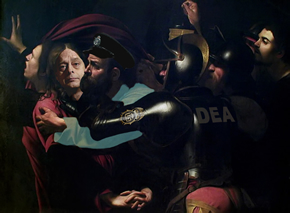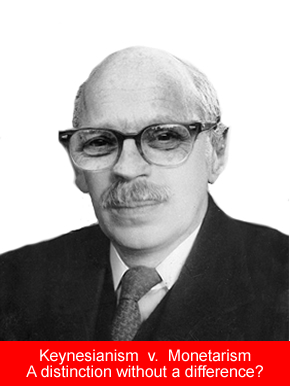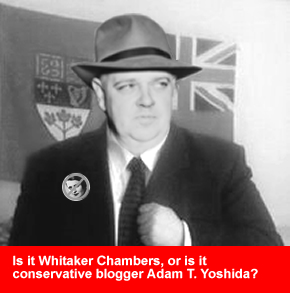New Full-length Documentary Argues Extradition of Marc Emery Would Violate Canada's Extradition Act
April 21, 2010 by Paul McKeever · 1 Comment
 Ontario lawyer Paul McKeever today released the second part of his two-part documentary about the Canadian “Prince of Pot”, Marc Emery. Titled “The Principle of Pot”, the release of Part 2 is timed to precede and to inform a decision by Canada’s federal Justice Minister, Rob Nicholson, about whether or not to approve the extradition of Emery to the United States. If extradited, Emery faces five years of imprisonment in the USA for having sold cannabis seeds. Emery mailed seeds to Americans from Vancouver, Canada, via Canada Post. The Minister’s decision is expected by May 10, 2010. Read more
Ontario lawyer Paul McKeever today released the second part of his two-part documentary about the Canadian “Prince of Pot”, Marc Emery. Titled “The Principle of Pot”, the release of Part 2 is timed to precede and to inform a decision by Canada’s federal Justice Minister, Rob Nicholson, about whether or not to approve the extradition of Emery to the United States. If extradited, Emery faces five years of imprisonment in the USA for having sold cannabis seeds. Emery mailed seeds to Americans from Vancouver, Canada, via Canada Post. The Minister’s decision is expected by May 10, 2010. Read more
Laying Blame for the Economic Mess: Milton Keynes or John Maynard Friedman?
September 11, 2009 by Paul McKeever · 1 Comment
 On September 2, 2009, the Financial Post published an opinion piece by Penn Bullock that asks whether or not the current economic crisis was the result of Milton Friedman’s monetarism. Casting him rightly as someone held up as a hero by libertarians, Bullock concludes:
On September 2, 2009, the Financial Post published an opinion piece by Penn Bullock that asks whether or not the current economic crisis was the result of Milton Friedman’s monetarism. Casting him rightly as someone held up as a hero by libertarians, Bullock concludes:
For two libertarian champions of free markets and limited government, this legacy has the ring of a world-historic irony.
In response, I submitted the following letter to the editor of the Financial Post. From what I can tell, it was not published by that paper. Read more
Paul McKeever’s Minimal Maxims and Bon Arrows, volume 1, issue 2
January 5, 2009 by Paul McKeever · Leave a Comment
 Having joined the many who purchased a large tome on the case for atheism, he realized: the joke’s onus.
Having joined the many who purchased a large tome on the case for atheism, he realized: the joke’s onus.
I think in Canada, therefore, he is.
Objectivism: The flower of freedom springs only from the soil of reality.
Libertarianism: The flower of freedom is cut from silk.
It’s never the economy, stupid.
Hors d'oeuvre: a Libertarian in the Lion's Den
August 28, 2008 by Paul McKeever · 4 Comments
 Over at the Western Standard’s blog, it has been announced that the Libertarian Party of Canada’s newly-chosen leader has announced he will run against Prime Minister Stephen Harper, the leader of the Conservative Party of Canada, in his Alberta riding of Calgary Southwest. Readers of my blog will know that I am not a libertarian and that I oppose libertarianism. However, because I do not believe a party can succeed in facilitating a freer society by bringing together people who oppose each other on matters of metaphysics, epistemology, or ethics, I do not hesitate to share my opinion on this matter publicly. In other words: I do not think this advice will help the libertarian movement, because nothing will, so I feel no need to keep quiet about the Libertarian Party leader’s decision. Read more
Over at the Western Standard’s blog, it has been announced that the Libertarian Party of Canada’s newly-chosen leader has announced he will run against Prime Minister Stephen Harper, the leader of the Conservative Party of Canada, in his Alberta riding of Calgary Southwest. Readers of my blog will know that I am not a libertarian and that I oppose libertarianism. However, because I do not believe a party can succeed in facilitating a freer society by bringing together people who oppose each other on matters of metaphysics, epistemology, or ethics, I do not hesitate to share my opinion on this matter publicly. In other words: I do not think this advice will help the libertarian movement, because nothing will, so I feel no need to keep quiet about the Libertarian Party leader’s decision. Read more
Atlas Shrugged, Freedom, and the Reincarnation of Whitaker Chambers
August 2, 2008 by Paul McKeever · 6 Comments
 In an article titled “On Libertarian Bolshevism”, conservative blogger Adam T. Yoshida argues that we see two approaches being proposed to achieve a free society that not only are doomed to fail, but also make it more difficult for a “Reactionary Libertarian” to achieve a freer society. Yoshida implies that the Reactionary Libertarian has an approach that can achieve freedom in a society that is either indifferent to, or hostile to, the goal of a free society: “going back to some older social structures and institutions”. Read more
In an article titled “On Libertarian Bolshevism”, conservative blogger Adam T. Yoshida argues that we see two approaches being proposed to achieve a free society that not only are doomed to fail, but also make it more difficult for a “Reactionary Libertarian” to achieve a freer society. Yoshida implies that the Reactionary Libertarian has an approach that can achieve freedom in a society that is either indifferent to, or hostile to, the goal of a free society: “going back to some older social structures and institutions”. Read more
Reason and Freedom vs. The Liberty Summer Seminar
May 20, 2008 by Paul McKeever · 31 Comments
I recently posted The One Way to Defeat a Rational Argument, which was about the importance of speaking Read more
Bad Arguments Against Censorship: "Better Democracy"
April 28, 2008 by Paul McKeever · 3 Comments
Seeing distinctions everywhere there is not a difference, Canada’s collectivist establishment is desperate to take down the governing collectivist “Conservatives“, and to replace them with the “natural governing party”, the collectivist “Liberals“. They hope thereby to achieve the titanic victory of doing away with the arch evil of redistributing wealth via tax credits to the “poor”, and instead redistributing wealth via righteous tax increases to the “rich”.
Enter Gerry Nicholls, the former chief of the National Citizens Coalition in Canada whose columns now appear in Canada’s major dailies from time to time. In one of his columns, published in the Edmonton Sun on April 23rd, he had the right proposal:
…we should scrap all these election gag laws…
Cutting his rationale down to the essential quotations:
None of this is good for democracy.
That’s why we should scrap all these election gag laws designed to regulate political spending and to muzzle free speech.
[…]
Democracy works best when there is a free marketplace of competing ideas.
(emphasis added).
I want to address Gerry’s rationale but, before doing so, let us try to understand it a bit better.
I begin with Gerry’s use of the word “democracy”. Given how utterly corrupted the meaning of the word democracy has become, it is not entirely clear what concept Gerry is referring to when he uses the word “democracy”. Arguably, the best solution in this case is the process of elimination.
Consider first Gerry’s “minarchist” (as in: “the government that governs least governs best”) libertarian streak. Like many others, minarchist libertarians regard life, liberty and property as inalienable rights; as things that cannot be trumped by the whims of the majority. Therefore, it is extremely doubtful that, by “democracy”, Gerry is referring to “majority rule”.
“Damned to Repeat It: Part I – Libertarianism”
Consider next the idea that “democracy” is a concept that refers to the source of a government’s powers. When used in this way, democracy refers to the idea that governmental authority stems from man, upon whom the facts of reality impose morality. It is doubtful that, by “democracy”, Gerry is referring to the source of a government’s power because the existence/non-existence of a “marketplace of ideas” is as possible in a theocracy (which regards god as the source of a government’s power) as in a democracy.
As I see it, that leaves one likely inference: by “democracy”, Gerry means “elections”. This is a definition of democracy shared by countless talking heads, journalists, and political junkies, and by those who convinced George W. Bush that setting up elections in Middle East countries is the same as making those countries democratic. Although Gerry is free to respond to this article with a correction, I must conclude that when Gerry says that “Democracy works best when there is a free marketplace of competing ideas”, what he really means is that “Elections work best when there is a free marketplace of competing ideas”.
Now, let us consider what Gerry means by a “free market” in this context. In a free market of goods and services, every person gets what he pays for and pays only for what he gets. In a free market of goods and services, one would get only the election commercials one paid for, and would pay only for the election commercials one got. However, Gerry is not referring to a free market of goods and services: the issue here is not, for example, whether regulations have given one television network an unfair advantage over another. Gerry is referring to a free market of ideas competing for the minds and ballots of voters.
Now, forgive me, but I think Gerry is just talking loosely. Too loosely. In fact, I do not believe Gerry really even means “free market of competing ideas” when he uses the term. If he does, I do not believe he has thought it through very well.
Gerry is not alone, however. The reference to a “free market of ideas” is a common libertarian practice. It would not surprise me were I to discover that that practice owes its genesis to the fact that libertarianism is a movement that was spearheaded not by philosophers, but by pro-capitalist economists (such as Murray Rothbard). To the man with a hammer, every problem is a nail and, to a libertarian economist, every philosophical issue is an aspect of the free markets vs. central planning debate. However, applied to the situation of voters weighing arguments during an election and voting accordingly, the analogy proves to be flawed. In a free market, every individual gets the product he pays for with his dollars. In contrast, in an election, an individual does not get the idea he voted for unless the majority of other individuals voted for the same idea. In truth, even that is wrong, because the majority of people do not really vote for ideas: they vote for parties (especially for parties that have no ideas). Therefore, when Gerry writes “free market of competing ideas”, he is either wrong, or he does not really mean it.
Giving Gerry the benefit of the doubt, what he really means is not “a free market of competing ideas” but: the absence of censorship. I do not think I have mischaracterized his argument – “Democracy works best when there is a free marketplace of competing ideas” – when I strip it of ambiguous jargon and loose metaphor to translate it plainly as: elections work best in the absence of censorship.
Assuming my translation is correct, I agree with Gerry that election finance laws impose an instance of censorship, and I agree that election finance laws should be scrapped. However, I submit that Gerry is entirely wrong when it comes to his rationale for scrapping election finance laws. As with all matters of government policy, the essential and defensible rationale for striking down election finances laws is: such laws are contrary to the survival and happiness of human beings.
The facts of reality – including facts that pertain to the nature of man – are such that no man can achieve his own happiness if he is prohibited from acting upon his own rational decisions. Freedom, properly defined, is control over ones own life, liberty and property. Without freedom – without that control – the rational decisions upon which a mans survival and happiness depend cannot be acted upon. Without freedom, a man’s mind is, in effect, paralyzed. An unfree rational man is the functional equivalent of a newborn baby or, worse, a vegetable. His survival is dependent upon the whims of those who feed, house and clothe him. And, though he can be relieved of pain and suffering, his happiness is impossible, because happiness is the result of a personal achievement: the successful pursuit of ones rationally-chosen values. Such achievements require freedom.
The role of government is to ensure that each individual is not deprived of control over his own life, liberty or property without his consent. By so defending freedom, a government defends human life.
Fining or imprisoning a person for spending his own money on a perfectly peaceful service – message distribution – is a deprivation of a person’s freedom; in particular, it is a deprivation of a person’s control over his own property. Such deprivation is wrong not because it prevents elections from working best and not because it is thought to be unneeded, but because it opposes and undermines the living of a rational life; of a human life.
Elections can work better in the absence of censorship, but that is only because the absence of censorship makes rational thought, discussion and action possible…possible, but – contrary to what Gerry implies – not inevitable. If, in the absence of censorship, nobody bothers to think rationally, elections will not – by any rational standard – work any better than they do under conditions of censorship. Irrationality cannot intentionally cause anything good because it cannot intentionally cause anything at all. If all ideas and discussions during an election are irrational, irrationality might cause “democracy” to be worse in some sense or another, but the censorship of some irrational expressions will not: adding more irrational arguments to a debate does not a better democracy make.
[VIDEO] Damned to Repeat It
March 13, 2008 by Paul McKeever · 1 Comment
My most recent installment (#11) in the “In Defence of Ayn Rand” series just finished uploading to my youtube channel. Titled “Damned to Repeat It”, it is a response to an anarcho-capitalist who has been creating a series of videos called “Ayn Rand Missteps” (Damned to Repeat It is a response to his fourth such video, which deals with Ayn Rand’s politics).
“Damned to Repeat It” has been broken into three parts, each relating to one of the three assertions made by the anarcho-capitalist (who goes by the name aaron0883): libertarianism, anarchism, and voting.
Here are the links to each:
IDOAR #11: Damned to Repeat It, Pt. 1 – Libertarianism
http://www.youtube.com/watch?v=ie9tFXtqJZo
IDOAR #11: Damned to Repeat It, Pt. 2 – Anarchism
http://www.youtube.com/watch?v=Ew-t0kuZRfg
IDOAR #11: Damned to Repeat It, Pt. 3 – Voting
http://www.youtube.com/watch?v=5wGjjNzb_iM
NOTE: sometimes, it takes a few minutes or hours for the videos to propagate through youtube.com’s servers…you might get a “file not found” message (or something similar) for a while. If so, just come back to the links a bit later.




